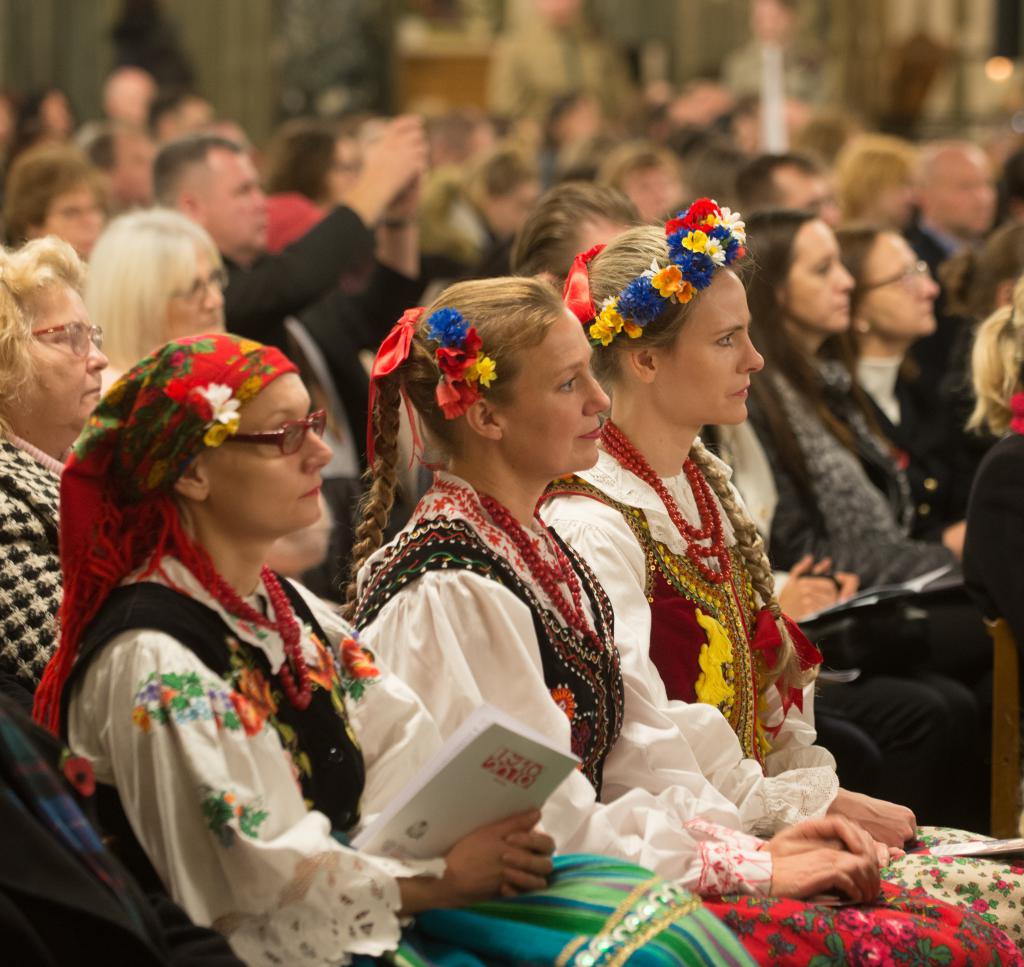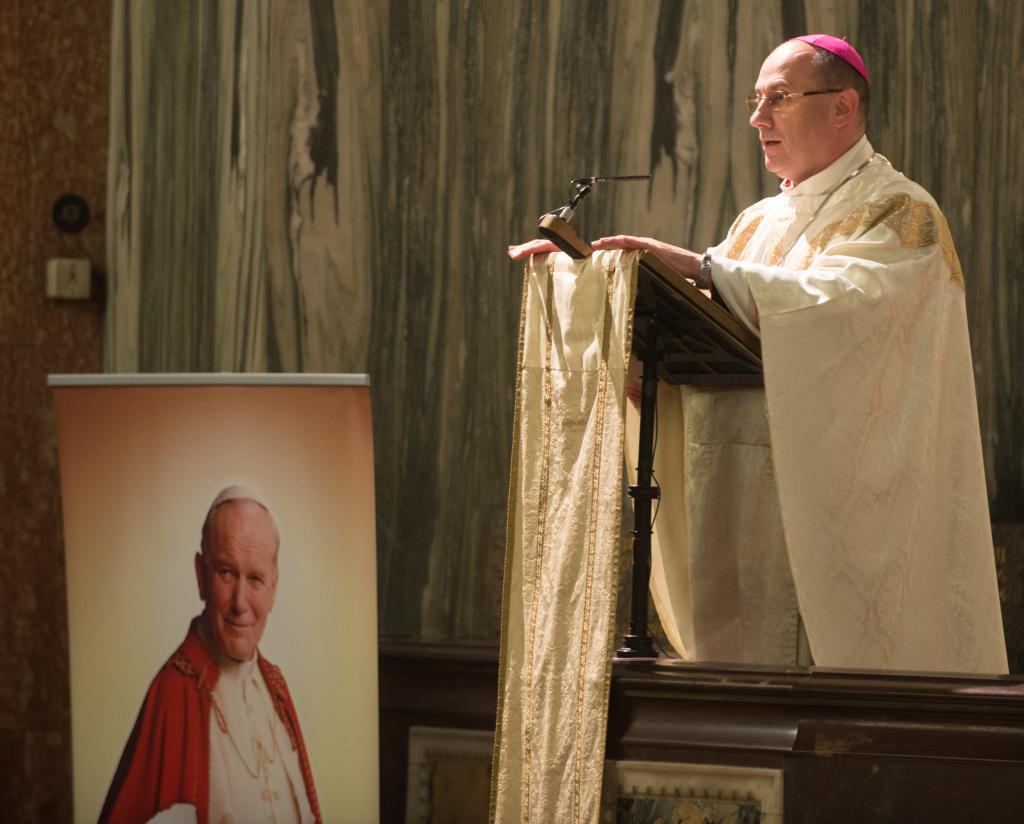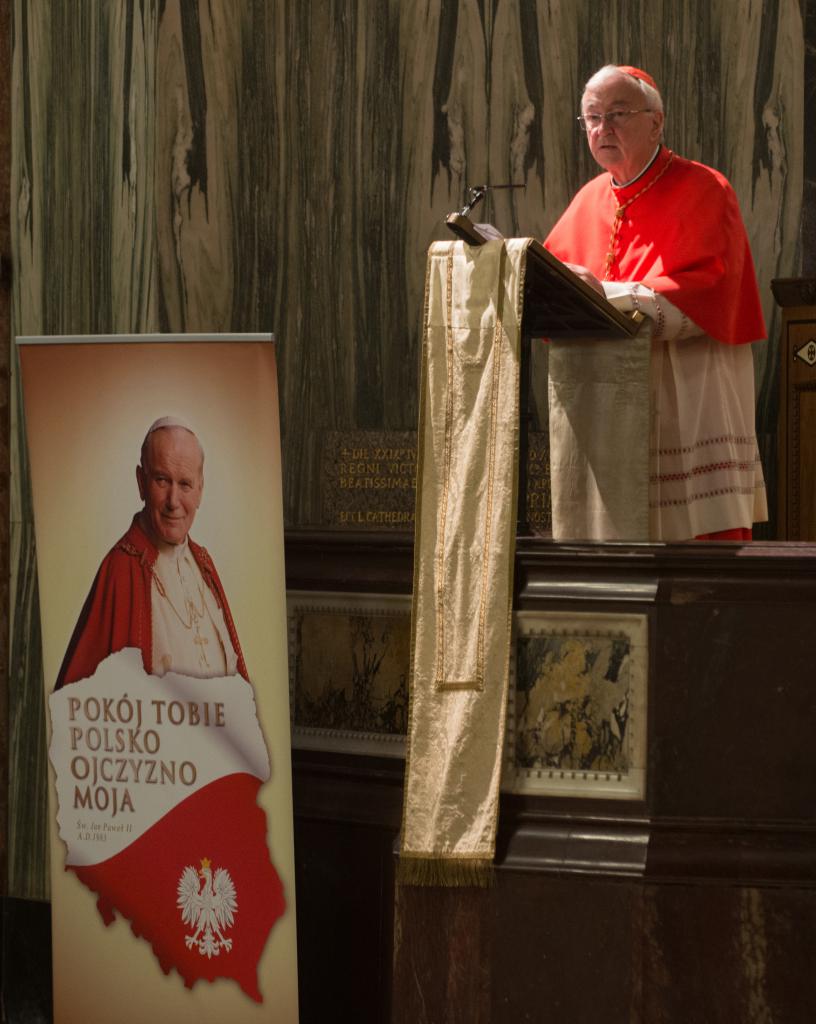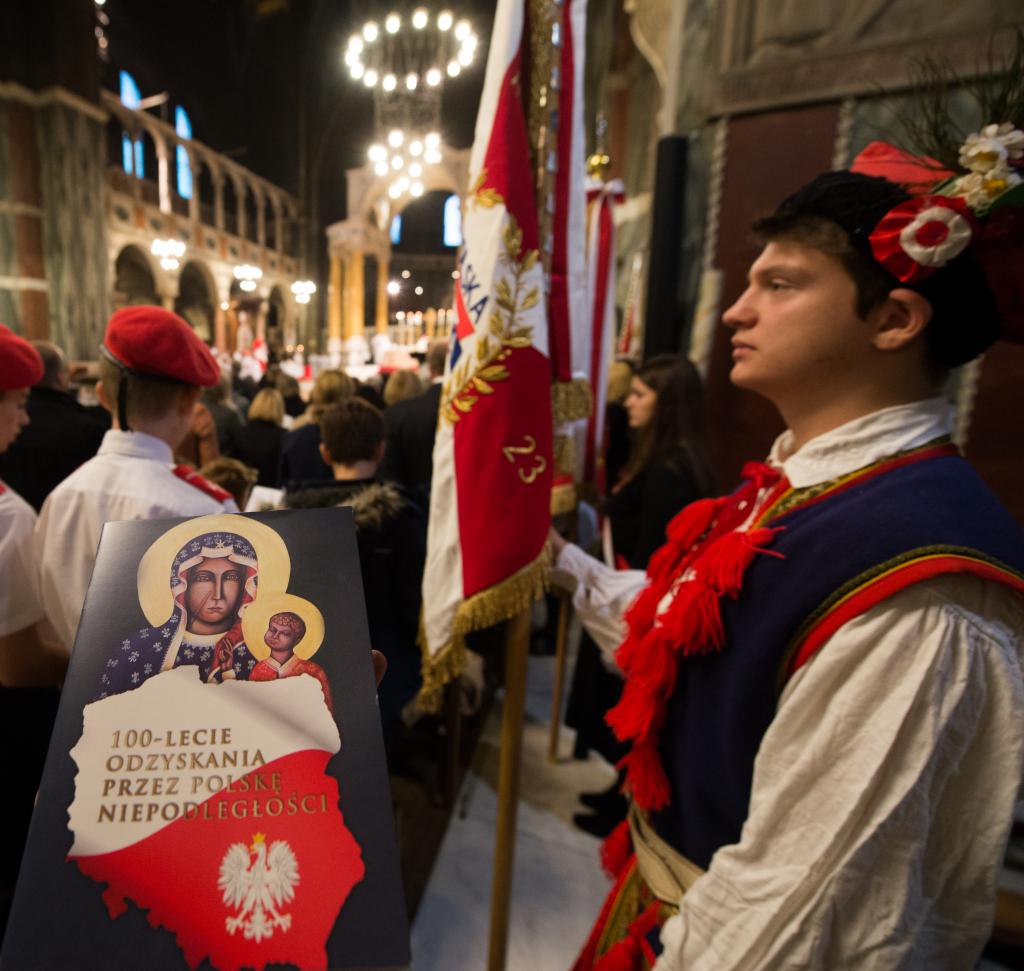November 11 this year marked the centenary of the signing of the Armistice, when we remembered the sacrifices of the First World War. It also marked the centenary of Poland’s independence, an event that was celebrated in style by the Polish community of London.
It is no coincidence that these anniversaries are commemorated on the same day, as the history of Polish independence is closely intertwined with the political events that shaped the world before and during the Great War, as Professor Wojciech Roszkowski, economist and politician, explained in a lecture to the congregation gathered for the Mass marking the occasion in Westminster Cathedral on 10th November. In 1914, Poland had been under the partitioned rule of the Prussian, Russian and Austro-Hungarian empires for over a hundred years, and ‘no Pole could have imagined that a mere five years later they would wake up in an independent Poland’.

He recounted how the events of the War and the changing fortunes of these empires during the conflict created the opportunity for the creation of a Polish Republic. Even the peace conference in Paris in June 1919 helped to determine some of the borders of Poland.
‘The memory of 1918 is very different in each European nation,’ he said. ‘France and Great Britain mainly remember the terrible sacrifice of soldiers who lost their lives to secure victory, and the horrors of trench war; whereas in Poland the War Dead are remembered as revered heroes fighting for freedom, the human price of that freedom sometimes forgotten.’
For this reason the Polish community comes together annually to remember the War Dead and to celebrate the country’s independence on the same day, with Mass forming a central part of these celebrations in recognition of the significant role of the Catholic faith in Polish life and culture.
As Archbishop Wojciech Polak, Archbishop of Gniezno and Primate of Poland, who presided, reminded the congregation of the words of St John Paul: ‘Poles wherever they are in the world, generally retain the bond with their homeland through the Church, through the memory of Our Lady of CzÄ™stochowa, through our Patron Saints, through all those religious traditions that have sustained our nation for a thousand years, and are still alive today.’

These words were visually manifest in the banners of Pope St John Paul and Our Lady of Częstochowa that took pride of place at the foot of the sanctuary.
Elements of this culture were also on display in the costumes of the Scouts and young people who attended in traditional dress, the Knights and Dames of the Orders of Holy Sepulchre and of Malta, and in the colourful banners on display during the procession.
The Archbishop firmly placed the commemoration in this context when he declared ‘when we look at regaining our independence a hundred years ago through the prism of faith, we can see that event in the light of the Providence of God.’
However, he noted, ‘by asking for almost “childlike abandonment” to his Providence, God does not relieve us from acting responsibly and bravely. We have a choice about how we live and how we nurture and look after the common good.’
He paid tribute to the ‘human generosity, sacrifice, charity, magnanimity, trust and hope’ of the Poles, both in Poland and in many centres abroad, including London, whose actions helped to bring about independence. Taking a lesson from their actions, he added: ‘perhaps at the same time we begin to discover within us the evangelical truth that there is more happiness in giving of oneself, in offering of oneself what we can, than in receiving.’
He explained: ‘The freedom and independence of our Homeland that we commemorate today is not limited merely to sovereignty and the independence from external factors, from others. Freedom means love and mercy. Freedom means engagement for the benefit of the common good, caring for the weakest and the destitute who need tangible help and support.’
‘We must acknowledge,’ he said, ‘that the only life that bears fruit is one offered to others, shared with others, capable of compassion, cooperation and solidarity.’
At the end of Mass, Cardinal Vincent greeted the congregation with the words: ‘I am glad indeed to share this remarkable celebration with you. One hundred years of Polish independence is a worthy moment and a moment for truly thanking God and encouraging one another.’

Acknowledging the ‘deep faith at the heart of the people of Poland and their culture’, the Cardinal added: ‘I thank God for that gift and pray that it may be strengthened and purified by all the tests and challenges we face today’.
He asked too for God’s blessing for Poland and expressed his wish that Polish people may ‘always be welcomed here in this country, and thanked, too, for the contribution you make to our society and to our Catholic life’.
Following a few words from Polish Ambassador Arkady Rzegocki, Senator Anna Maria Anders stepped forward unannounced to address the congregation. She remembered with pride her father, General Władysław Anders, who served his country during and after the Second World War, both as a soldier and statesman. General Anders was a prominent member of the Polish government-in-exile, which was formed following Soviet occupation in 1939.
She then paid tribute to Cardinal Vincent and on behalf of the Senate of the Republic of Poland presented him with the Senate medal.
While the festivities continued throughout London, the Mass had firmly rooted the centenary in the Catholic faith of the Polish community.




